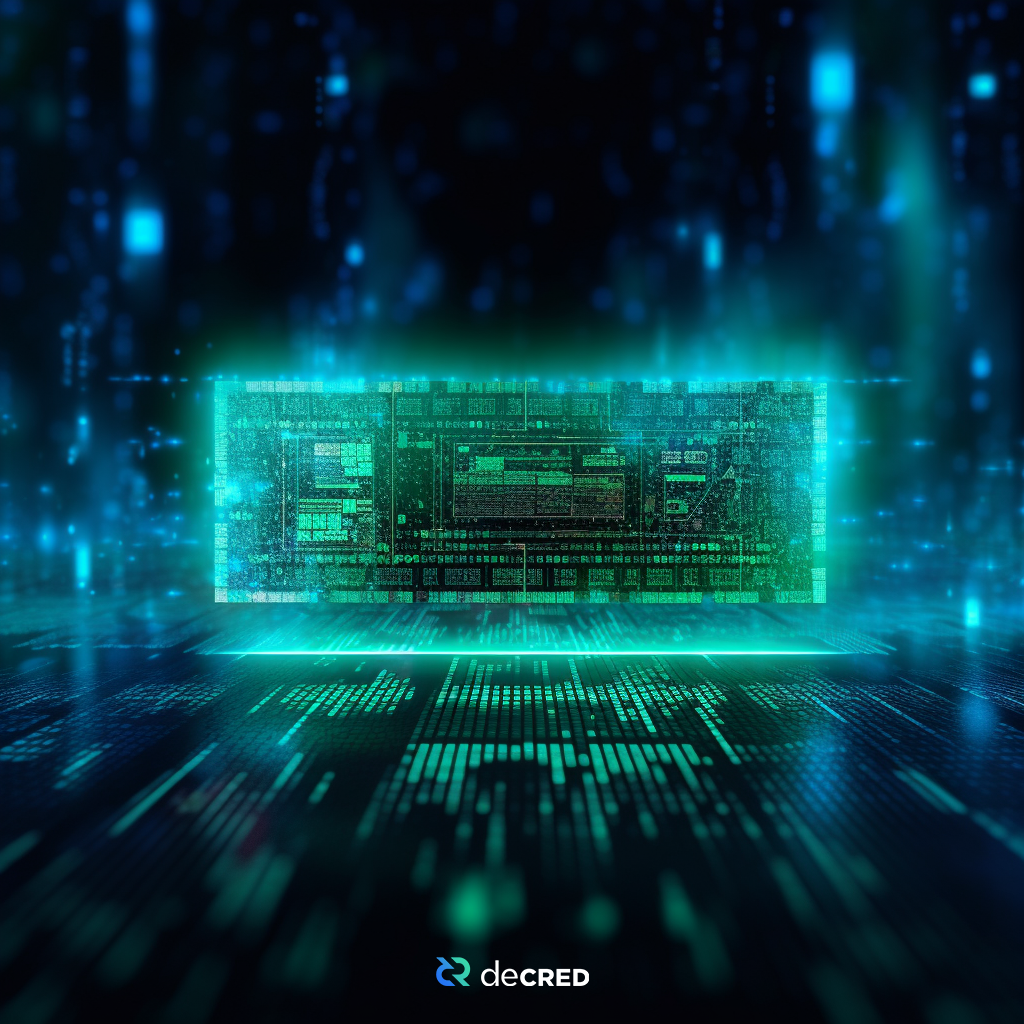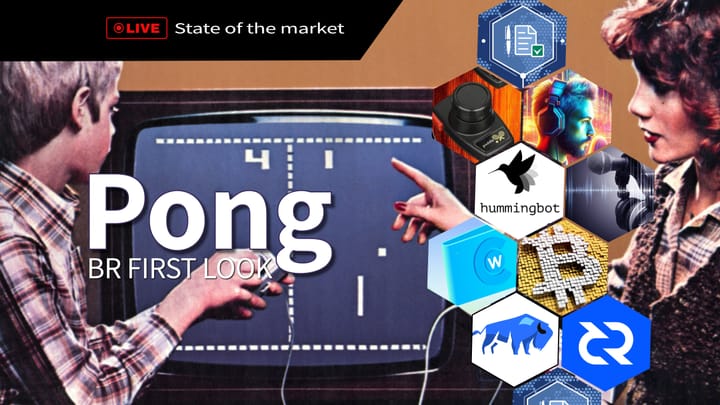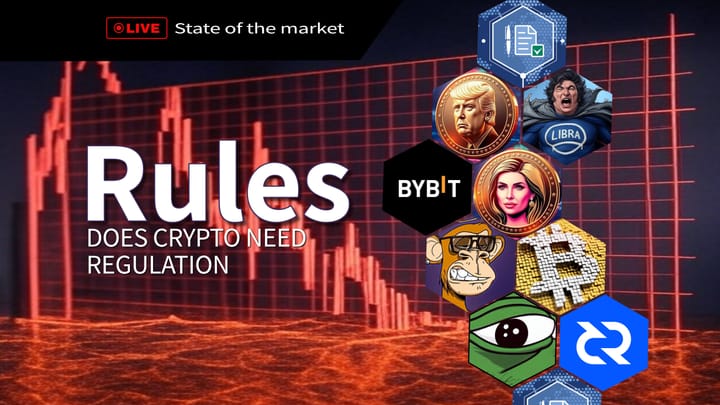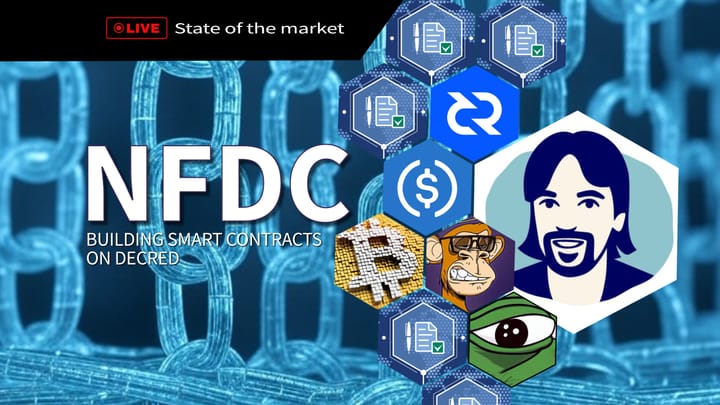DeFi enables peer-to-peer transactions without requiring intermediaries such as banks or financial institutions. Users can trade assets, lend, borrow, and earn interest directly with each other
Introduction
Decentralized Finance, or DeFi, has emerged as a groundbreaking force in the financial world, challenging the foundations of traditional banking systems. By leveraging blockchain technology and smart contracts, DeFi protocols offer innovative solutions that empower individuals to transact, lend, borrow, and earn interest in a decentralized and permissionless manner. In this article, we will explore the concept of DeFi, the unique features of Decred within the DeFi landscape, and delve into the potential of this combined force to disrupt traditional banking as we know it.
Understanding DeFi
DeFi refers to a suite of financial applications and services built on decentralized networks like Ethereum. These applications eliminate intermediaries by utilizing smart contracts, self-executing code that automatically enforces the terms of agreements. DeFi encompasses various services, including decentralized exchanges (DEXs), lending and borrowing platforms, stablecoins, yield farming, and more.
The Rationale Behind DeFi
DeFi addresses several shortcomings of traditional banking, including limited accessibility, high fees, and slow transaction times. DeFi protocols operate 24/7 without geographical restrictions, enabling users to access financial services at any time. Additionally, the removal of intermediaries reduces fees, making transactions more affordable and efficient.
Disintermediation and the Future of Banking
a. Peer-to-Peer Transactions
DeFi enables peer-to-peer transactions without requiring intermediaries such as banks or financial institutions. Users can trade assets, lend, borrow, and earn interest directly with each other, reducing the need for centralized third parties. This disintermediation not only cuts costs but also promotes financial inclusion by giving individuals more control over their financial activities.
b. Decentralized Exchanges (DEXs)
Decentralized exchanges allow users to trade digital assets without the need for a centralized exchange. This shift reduces the risk of hacks or platform failures and provides users with greater security and control over their assets. DEXs are a prime example of how DeFi is challenging traditional banking norms.
Banking Services Reinvented
a. Lending and Borrowing
DeFi lending platforms enable users to lend their digital assets and earn interest, while borrowers can obtain loans by collateralizing their crypto holdings. This creates a permissionless global lending market, making credit more accessible to individuals who might not have qualified under traditional banking criteria.
b. Stablecoins and Cross-Border Transactions
Stablecoins, which are pegged to a stable asset like the US Dollar, offer a reliable medium of exchange within the DeFi ecosystem. They facilitate cross-border transactions without the need for traditional intermediaries, cutting down on time and fees associated with international money transfers.

Personal Experience with DeFi's High APY Temptations
My journey into the world of DeFi was an eye-opening experience, one that exposed me to the allure of high Annual Percentage Yields (APYs) promised by various projects. The prospect of earning substantial returns on my investments was captivating, yet I soon discovered that not all that glitters is gold. Many of these projects offered seemingly irresistible APYs, but their sustainability was often questionable. As some projects crumbled under the weight of their unsustainable reward structures, my enthusiasm was met with a lesson in the importance of approaching DeFi investments with caution and a discerning eye.
The Reality Check: Sustainability and Security as Priorities
These experiences underscore the vital need for a reality check within the DeFi space. While high APYs can be enticing, the sustainability and security of a project should take precedence over short-term gains. The volatile nature of the cryptocurrency market coupled with the experimental nature of DeFi means that seemingly lucrative opportunities can come crashing down as quickly as they rise. A more holistic approach to evaluating DeFi projects is imperative, one that places emphasis on the project's fundamentals, team credibility, and long-term viability.
Towards a Secure and Realistic DeFi Landscape
As we navigate the ever-evolving DeFi landscape, it's crucial for the industry to collectively emphasize security and sustainability. Projects that prioritize proper auditing, transparent governance, and a focus on user protection will stand a better chance of contributing positively to the financial revolution that DeFi promises. This shift towards a more secure and realistic DeFi environment aligns with the overarching goal of creating a financial ecosystem that empowers users without exposing them to unnecessary risks. By learning from past mistakes and focusing on responsible growth, we can build a DeFi ecosystem that truly lives up to its transformative potential.

Decred: A Distinctive Voice in DeFi
Decred, a pioneering blockchain project, introduces a unique perspective within the DeFi landscape. Decred's focus on decentralized governance, combined with its hybrid proof-of-work and proof-of-stake consensus mechanism, sets it apart as a cryptocurrency that empowers its community to participate in decision-making.
a. The Governance Advantage
Decred's governance model gives stakeholders the power to propose and vote on protocol upgrades, ensuring that the network's evolution remains community-driven. This approach aligns with the principles of decentralization that underpin the DeFi movement, emphasizing the importance of collective decision-making.
b. Staking for Active Participation
Similar to the DeFi concept of staking, Decred holders can participate in the network's security and governance by staking their coins. This active involvement not only strengthens the network's security but also fosters a sense of ownership and collaboration among participants.
The Way Forward: A Synergy of DeFi and Decred
DeFi's rapid growth and innovative potential, combined with Decred's commitment to decentralization and community empowerment, suggest a future where individuals have more control over their financial interactions. The synergy between DeFi's disruptive solutions and Decred's emphasis on governance and participation could accelerate the transformation of traditional banking systems.
Decentralized Finance (DeFi): Transforming Financial Systems
Decentralized Finance (DeFi) has rapidly emerged as a transformative force, redefining traditional financial systems by offering open, permissionless, and innovative alternatives. DeFi protocols leverage blockchain technology to create a diverse range of services, from decentralized exchanges (DEXs) that enable direct peer-to-peer trading without intermediaries, to lending platforms that provide opportunities for borrowing and lending digital assets. By eliminating intermediaries, reducing fees, and promoting financial inclusivity, DeFi is challenging the centralized structures of traditional banking and empowering users with unprecedented control over their financial activities.
DCRDEX: A Decentralized Exchange for the DeFi Landscape
Within the expansive realm of DeFi, DCRDEX stands out as a notable player in the realm of decentralized exchanges. DCRDEX, powered by Decred's atomic swap technology, is an open-source, community-driven exchange that exemplifies the principles of decentralization and user empowerment. DCRDEX enables users to trade directly from their wallets, maintaining custody of their funds throughout the process. This innovative approach ensures that users have full control over their assets, reducing the risk associated with traditional centralized exchanges and aligning with the core tenets of DeFi.
Synergizing DeFi and DCRDEX: A New Paradigm in Finance
The integration of DCRDEX within the DeFi ecosystem highlights the potential for a new paradigm in finance. By utilizing a decentralized exchange like DCRDEX, DeFi enthusiasts gain access to a secure and transparent trading platform that embodies the values of autonomy and self-sovereignty. The synergy between DeFi protocols and DCRDEX's decentralized approach further solidifies the notion that traditional banking systems can be disrupted and reshaped to provide individuals with more control, transparency, and accessibility in their financial endeavors.
Conclusion
Decentralized Finance (DeFi) represents a transformative force that challenges the traditional banking paradigm. With the inclusion of Decred's unique attributes, such as decentralized governance and community-driven decision-making, the potential for disruption becomes even more compelling. Together, DeFi and Decred pave the way for a financial landscape where individuals have the tools and agency to shape their financial destinies. As this dynamic partnership continues to evolve, the world of finance is poised for a shift towards inclusivity, accessibility, and empowerment. Responsible exploration and integration of these technologies will be key in harnessing their potential for a more decentralized and equitable financial future.






Comments ()